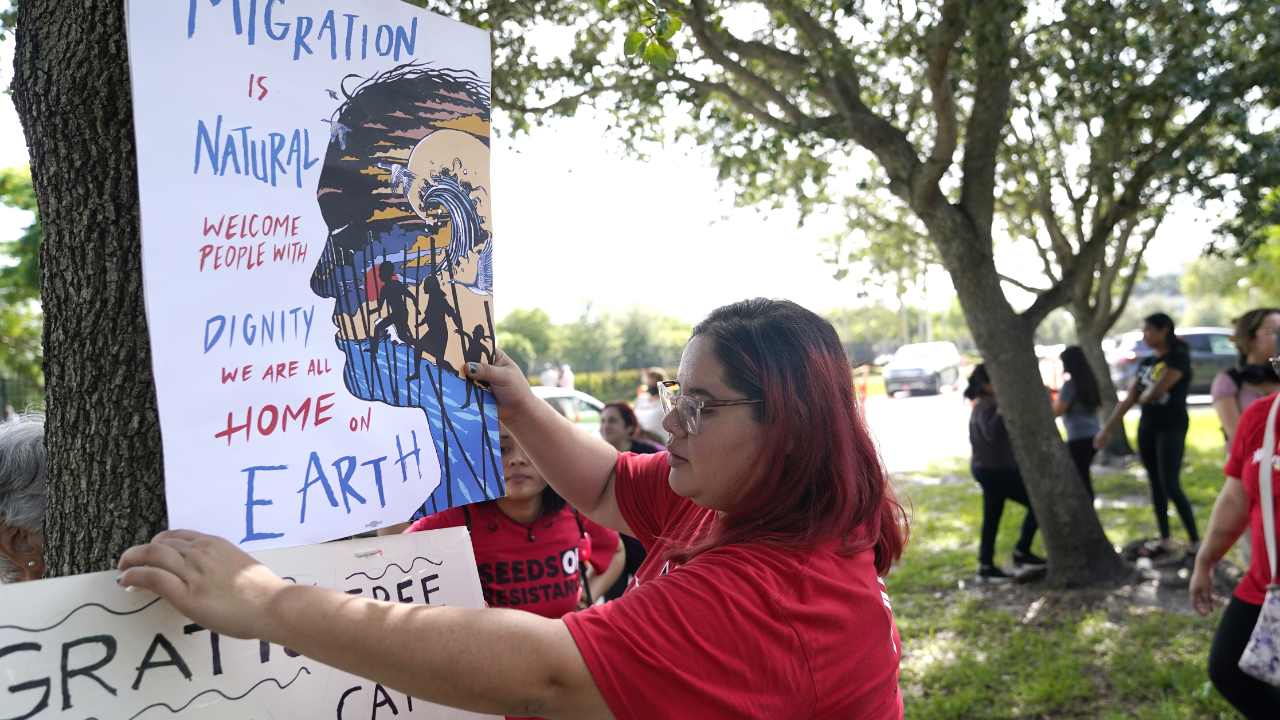Race Day Live Growing up, Dedé Flores dreamed of becoming a doctor. She worked hard in school because she wanted to go to college and help people.
Her mother brought her from Nicaragua to South Florida when she was a child, hoping for a better future. Thanks to a Florida law that allows undocumented students to pay in-state tuition, Flores was able to earn a biology degree and complete medical school.
Now, that law is under attack. Republican lawmakers in Florida want to remove in-state tuition waivers for undocumented students as part of a bigger plan to change the state’s immigration policies.
Last year, around 6,500 undocumented students benefited from these tuition waivers, according to the Florida Policy Institute. Without them, many students may not be able to afford college.
The Florida Legislature, controlled by Republicans, recently passed a measure that would require undocumented students to pay out-of-state tuition.
That means their college costs would double. The proposal does not affect students in the federal Deferred Action for Childhood Arrivals (DACA) program, but it would make education more expensive for thousands of other undocumented students who grew up in Florida.
Flores believes this change would hurt the state. “These are people who want to learn, work, and give back to the community,” she said.
“Getting rid of in-state tuition takes away future doctors, engineers, and professionals who can help Florida grow.”
Democrats strongly opposed the bill, especially the part about removing in-state tuition. “I completely disagree with this decision,” said Rep. Kevin Chambliss, a Democrat from Homestead. “These students have done more good for Florida than harm.”
Even though the bill passed, Governor Ron DeSantis has used his veto power to block it—for now. However, DeSantis supports another proposal that would also remove in-state tuition for DACA recipients.
Democratic Senate Minority Leader Jason Pizzo wants students to know that nothing has changed yet. “Until you hear it directly from me or other lawmakers, in-state tuition waivers are still in place,” he said.
He hopes lawmakers will find a way to protect students who are already enrolled when they meet again in March.
Republican Senator Alexis Calatayud of Miami was one of the few Republicans who voted against the measure. She believes every child deserves a chance at education, no matter their background.
“Affordable education gives every child a chance at the American dream,” she said. “I feel deeply for the thousands of students who were brought here through no fault of their own.”
Read More:
- Why Republican States Get More Disaster Aid ? Experts Reveal the Truth!
- Michigan Man Sentenced to 327 Months for Drug Trafficking and Firearms Offenses!
Impact on Families
While lawmakers debate immigration policies, undocumented families in Florida are worried about what comes next. “The Florida Legislature and the governor are playing politics, but real families are suffering,” said Tiffany Hankins from the Florida Immigrant Coalition.
Losing in-state tuition is not the only concern. The proposed bill also supports federal immigration enforcement efforts, making it harder for undocumented immigrants to stay safe.
For example, it could remove protections for places like hospitals, schools, and churches, which are usually considered “safe zones” from immigration enforcement.
It would also require state and local employees, including government contractors, to cooperate with federal authorities in deportation efforts.
“We’re very worried about this,” Hankins said. “These laws target places that should be free from political attacks.”
Hankins encourages undocumented immigrants to know their rights. “You don’t have to answer questions from the police, and you have legal protections against unfair searches,” she said.
She advises people to talk to a lawyer or call her organization’s hotline for accurate legal information.
But the impact of these policies extends beyond those directly affected. Families could be torn apart if stricter immigration enforcement is enacted.
“This isn’t just about individual students,” Hankins said. “Whole families could be separated.”
Flores knows that risk all too well. While she and her younger brother, now an engineer, have temporary legal status under DACA, her mother and uncle do not. “My family means everything to me,” she said. “I always worry—what if they get taken away?”
If that happened, Flores says she might have to leave the U.S., even though it’s the only home she’s ever known. “I love Miami,” she said. “This is my home.”
Disclaimer- Our team has thoroughly fact-checked this article to ensure its accuracy and maintain its credibility. We are committed to providing honest and reliable content for our readers.

